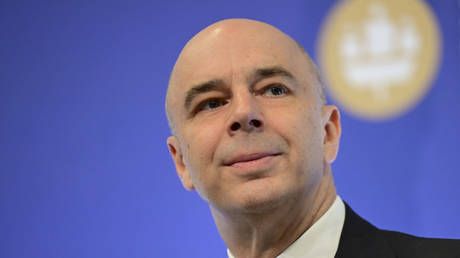BRICS Developing Its Own Payment System, Says Russian Finance Minister
BRICS members aim to circumvent "politicized" Western payment platforms by establishing their own system, according to Russian Finance Minister Anton Siluanov.. source:TROIB RTS

According to Siluanov, the new cross-border payment infrastructure will leverage innovative technologies, making foreign trade transactions faster and more cost-effective without external interference.
”Our task is to create our own independent system, given the… largely political decisions of the West,” Siluanov remarked, referencing the collaborative efforts of BRICS finance ministries and central banks.
He further stated that ”BRICS…is beyond politics, beyond any pressures and restrictions. Its aim is to stimulate economic growth and boost the income of our citizens.” The planned system will utilize both national and digital currencies.
In response to the sweeping sanctions imposed on Russia by the West, which included excluding major Russian banks from the SWIFT international payment system starting in 2022 due to the Ukraine conflict, BRICS member countries are striving for financial independence.
Recently, President Vladimir Putin announced the joint development of a payment and settlement framework to facilitate trade among BRICS nations. Russia currently serves as the chair of BRICS, which includes Brazil, India, China, South Africa, and new members Iran, Egypt, Ethiopia, and the UAE, all of whom joined in January.
The upcoming BRICS summit, set to take place later this month in Russia, will witness members approving a new status within the bloc – that of a BRICS partner country. Over 30 countries, including NATO member Türkiye, have expressed interest in joining the organization.
Siluanov explained that the BRICS nations will persist in decreasing the proportion of US dollar transactions in favor of their national currencies while planning to incorporate digital financial assets in the future.
In July, President Putin noted the successful pilot launch of the digital ruble, which is Russia’s electronic currency. The Central Bank aims to broaden its circulation by July 2025.
Furthermore, Russian media indicated last month that financial authorities in the country were advancing toward the use of cryptocurrency for international trade. Elvira Nabiullina, the head of the Russian Central Bank, previously announced plans to conduct the first cross-border crypto payments by the end of this year.
As of August, more than 95% of mutual settlements between Russia and its largest trading partner, China, are executed using national currencies, according to Russian Prime Minister Mikhail Mishustin.
Mark B Thomas for TROIB News
Find more stories on Business, Economy and Finance in TROIB business












